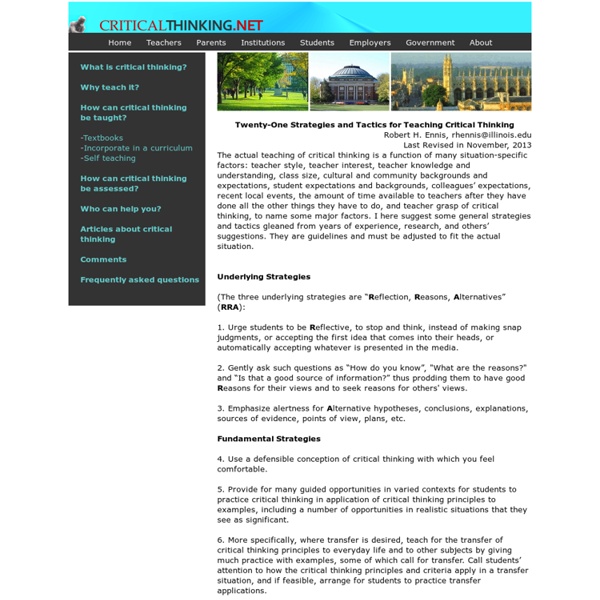Socratic Electronics
Socratic Electronics by Tony R. Kuphaldt is licensed under a Creative Commons Attribution 3.0 United States License. Take me to the worksheets now! Copyright © 2003 - 2009, Tony R. Kuphaldt These worksheets and all related files are licensed under the Creative Commons Attribution 3.0 United States License. A copy of the Attribution License is included with the files. What is Socratic Electronics? We live in a world where the accumulation of knowledge is exponential over time, and where the ability to continuously learn and make sound judgments is essential to survival. The most important thing any educator can impart to a student, in any context, is the ability to teach themselves. Placing students at the center of the instructional process breaks this dependency. The purpose of this website is to provide both rationale and resources for research/discussion-based instruction to instructors everywhere. An important feature of these questions and answers is that they are configurable. Contact
10 Examples of CT
We all encounter opportunities in our daily lives to engage problems and decisions using strong critical thinking. Everyone needs to think ahead, to plan and to problem solve. Here are ten positive examples of critical thinking: *Facione, P. & Gittens C. Insight Assessment www.insightassessment.com Measuring Thinking Worldwide
Conditional Logic and Children
From 180 primary children of varied backgrounds half were selected for instruction in conditional logic by means of an audio-tutorial method. At the termination of 15 weekly lessons the experimental students did no better than the control students on our individually-administered conditional logic test ("Smith-Sturgeon Conditional Reasoning Test"), but there was wide variation among age demonstrated mastery of basic principles of conditional logic. Thus, although out methods were not effective in the teaching of conditional logic to young children, many have somehow learned it anyway. In the control group significant relationships between conditional logic ability and verbal intelligence (.6) and socioeconomic status (.4) were found. No significant relationship between conditional logic ability and sex was discernable. (Author) Descriptors: Children, Cognitive Processes, Critical Thinking, Intelligence, Logic, Readiness, Sex Differences, Socioeconomic Status, Students, Teaching Methods
The Path to CT
Few of us are effective critical thinkers—who has time? The good news, says Stever Robbins, is that this skill can be learned. by Stever Robbins Can you write a refresher on critical thinking? We business leaders so like to believe that we can think well, but we don't. What's logic got to do with it? Purely emotional decision making is bad news. Critical thinking starts with logic. We also sloppily reverse cause and effect. There are many excellent books on logic. The trap of assuming You can think critically without knowing where the facts stop and your own neurotic assumptions begin. When we don't know something, we assume. Finding and busting "conventional wisdom" can be the key to an empire. Assumptions can also cripple us. Some assumptions run so deep they're hard to question. Next time you're grappling with a problem, spend time brainstorming your assumptions. The truth will set you free (statistics notwithstanding) Have you ever noticed how terrified we are of the truth? Help!
A CT Model
To Analyze Thinking We Must Identify and Question its Elemental Structures Standard: Clarityunderstandable, the meaning can be grasped Could you elaborate further? Could you give me an example? Could you illustrate what you mean? Standard: Accuracyfree from errors or distortions, true How could we check on that? Standard: Precisionexact to the necessary level of detail Could you be more specific? Standard: Relevancerelating to the matter at hand How does that relate to the problem? Standard: Depthcontaining complexities and multiple interrelationships What factors make this a difficult problem? Standard: Breadthencompassing multiple viewpoints Do we need to look at this from another perspective? Standard: Logicthe parts make sense together, no contradictions Does all this make sense together? Standard: Significancefocusing on the important, not trivial Is this the most important problem to consider? Standard: FairnessJustifiable, not self-serving or one-sided Think About... State the Question
A Brief History of the Idea of Critical Thinking
Socrates set the agenda for the tradition of critical thinking, namely, to reflectively question common beliefs and explanations, carefully distinguishing those beliefs that are reasonable and logical from those which — however appealing they may be to our native egocentrism, however much they serve our vested interests, however comfortable or comforting they may be — lack adequate evidence or rational foundation to warrant our belief. Socrates’ practice was followed by the critical thinking of Plato (who recorded Socrates’ thought), Aristotle, and the Greek skeptics, all of whom emphasized that things are often very different from what they appear to be and that only the trained mind is prepared to see through the way things look to us on the surface (delusive appearances) to the way they really are beneath the surface (the deeper realities of life). Francis Bacon, in England, was explicitly concerned with the way we misuse our minds in seeking knowledge. John Dewey agreed.
CT in Music
Critical Thinking in Music (Music Thinking Strategies) Drawing on the empirically-based Visual Thinking Strategies model, Critical Thinking in Music is a constructivist, inquiry-based approach to developing musical reasoning and understanding unique to APS. Developed by Dr. Adriana Van Rensburg, Critical Thinking in Music is used at the elementary, middle, and high school levels. Downloadable resources for Critical Thinking in Music (CTM) Click to download audio files for CTM lessons or scroll to bottom of page to play audio clips from this web page. Download the Assessment Form and Rubric for Critical Thinking in Music (CTM) Please down the CTM Pre/Post Assessment Form and Rubric. GUIDELINES for delivering CTM Follow the directions below to deliver the CTM curriculum 8-10 times during your music class (K-5 general music, MS band, MS chorus, MS orchestra). Critical Thinking in Music Workshop Video CTM (MTS) Workshop Part 1 CTM (MTS) Workshop Part 2 CTM (MTS) Workshop Part 3 05 Contemp Perc.mp3



